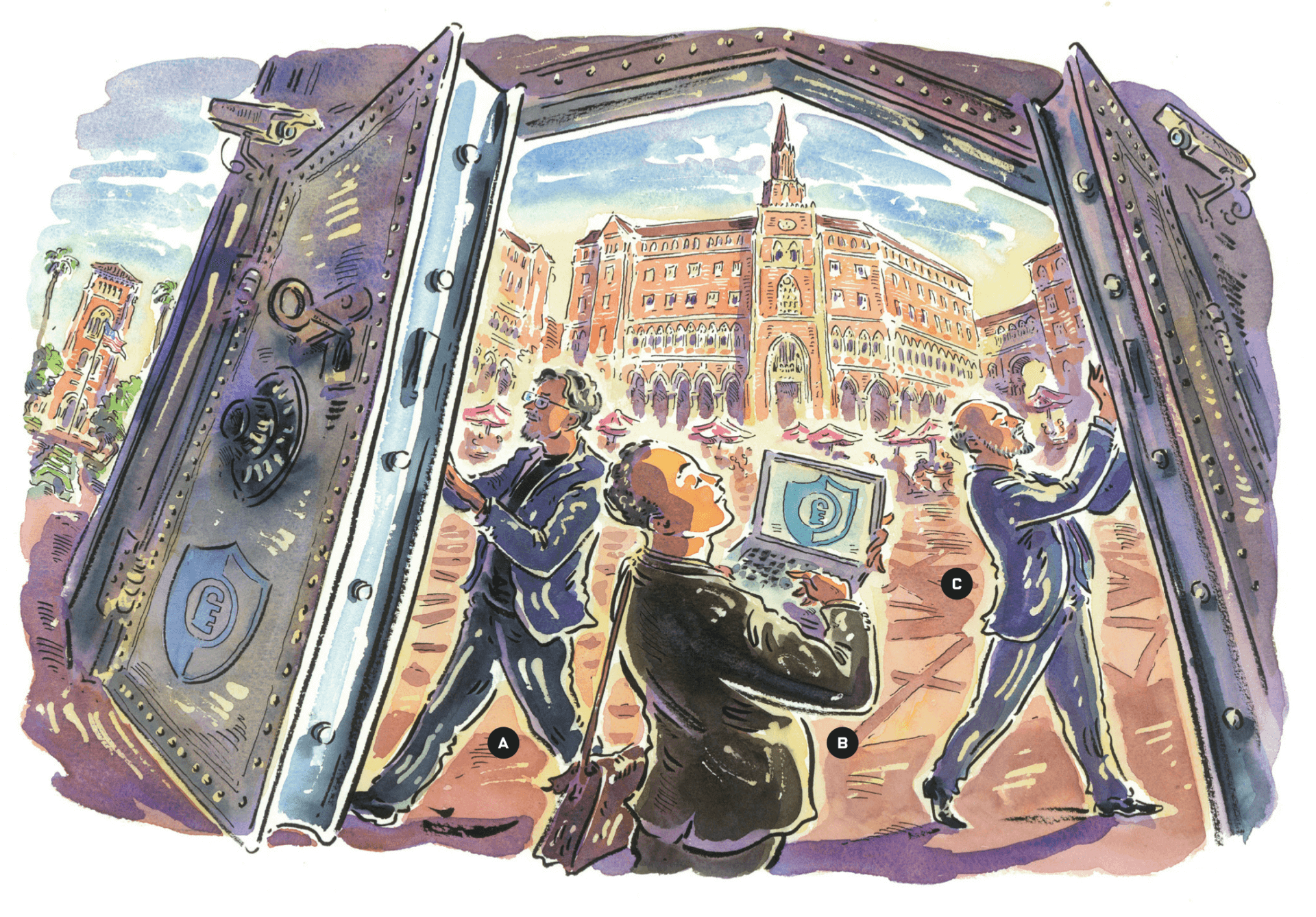Computing and Security

Faculty in this group focus on the protection of information and software in modern computing ecosystems with emphases on both technology and policy. Meet some of the faculty active in this group below.
Professor of Architecture, Civil & Environmental Engineering, Computer Science, Population and Public Health Sciences, Sociology and Spatial Sciences
“Human security and geospatial intelligence both focus on ‘what is where, when,’ and this information is used to assess risk and to guide interventions to protect lives and assets around the world.”
The digital era has brought a large number and variety of new data sources and streams that can be used to trace the movements of people and assets around the world, and we need spatial analysis and modeling as well as advanced computing resources to turn these data into actionable information.
Wilson and his team have launched undergraduate and master’s degrees in human security and geospatial intelligence. They propose using advanced computing to support spatial analysis and modeling to pinpoint hotspots that may lead to civil unrest and worse due to the changing climate and the consequences for different regions and nations.
Professor of Law
“Computing is crucial in allowing legal scholars to analyze large bodies of text, like regulatory documents or legal opinions. Because lawmakers produce new legal documents at such a fast pace, computational methods are the only way that we can make large-scale discoveries about trends in the law.”
Choi’s legal background helps him to identify policy-relevant questions, and computational methods provide the tools to find the right answers. Some of his current research includes evaluating the use of large language models on traditional empirical legal scholarship, demonstrating how to use ChatGPT to analyze legal documents and identifying best practices for the use of large language models in research.
In 2023, in a paper titled “ChatGPT Goes to Law School,” Choi and his co-authors found that AI models are rapidly improving, and, in some cases, can outperform real students on law school exam questions.
He has been one of the top 10 most-downloaded legal scholars worldwide. Choi has also won awards and accolades for his research applying computational methods to law. His work has been cited in court opinions and in the popular press by outlets like ABC, CBS, CNN, NBC, The New Yorker, and USA Today.
Professor of Computer Science and Communication
“Computing is essential to the field of security because it enables the development of advanced algorithms and systems capable of detecting, analyzing, and mitigating threats in real time. It also allows for the integration of machine learning, data mining, and artificial intelligence to predict and counteract sophisticated cyberattacks and information manipulation at scale.”
Ferrara has integrated computing with security by pioneering the use of graph-based models and machine learning to uncover information operations, such as disinformation campaigns and online manipulation. Notable accomplishments include his work on identifying botnets in social media ecosystems and developing methods to protect online information integrity, particularly in the context of elections and public discourse.
During the 2016 presidential election cycle, Ferrara’s analysis showed how automated bots were shaping political debates on social media — research that was later cited in federal investigations into Russian interference in that election.


